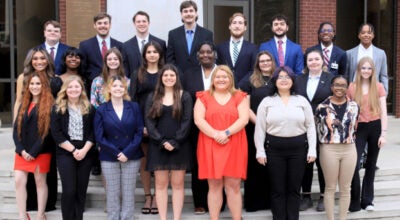MS Valley District works to tame the Mississippi
Published 6:39 pm Thursday, April 12, 2018
The U.S. Army Corps of Engineers performs a number of programs, from assisting with the Army’s mission in Afghanistan and performing public works projects in the U.S. to assisting Puerto Rico and the U.S. Virgin Islands return to normal after Hurricane Maria.
But it also has the job of keeping the “superhighway” known as the Mississippi River open to navigation and protecting the cities, towns, farms and businesses along its banks, Corps Mississippi Valley Division commander Maj. Gen. Richard Kaiser told Vicksburg Rotarians.
As division commander, Kaiser oversees an area extending from the Canadian border south to the Gulf of Mexico that includes a number of locks and dams that keep the Mississippi navigable and helps with flood control.
“We are a maritime nation,” Kaiser said, pointing out that people are familiar with the country’s three coastal areas, Atlantic, Gulf and Pacific.
“But you forget about the Great Lakes, called the Northern Coast. Twenty percent of the world’s fresh water is located right up here in those things called the Great Lakes. A huge amount of commerce goes through there.
“So you’ve got the north, the south, the east and the west, and what do you think ties it all together? The Mississippi River. It is the conduit that drains 41 percent of our nation, and it’s a superhighway for goods and services that many of you take for granted because it’s right next to you.”
Kaiser said 95 percent of the country’s imports and exports move on water and accounts for $4.1 trillion of the economy annually.
“So we are a maritime nation, and one our biggest jobs is making sure that a river is usable for our country,” he said. “If you’re going to have a vibrant economy, you’ve got to have reliable navigation, but you’ve got to have flood control.”
And while Vicksburg is in good shape because it is on a bluff, “You go up and down the river and you look at the plains, if you’re not looking for the levees, you’re going to miss them. But once you see where they are, (and) the businesses that flourish on the outside of the levee, it’s amazing how we’ve been able to harness the power of that river.”
Kaiser said the 15-barge tows on the river take about 1,000 tractor-trailers off the road. For every billion dollars of farm and agricultural products that move on the river, he said, “That creates about 6,800 jobs. So never forget how important that river is.”
He said weather pattern changes have affected the river, adding the recent early spring flood that hit the area in March with a 50-foot crest in Vicksburg, was the 10th highest recorded, “But you didn’t hear a lot about it, because a lot of work has been done over time with our levees and other systems, that help protect people.”
He said the Mississippi River & Tributaries Project, approved by Congress after the 1927 floods, provided projects that protect the region from Cairo, Illinois, south to the Gulf.
The MR&T’s system of levees and floodways, he said, protect 4.5 million people, 22.5 million acres of agricultural land, 108 power plants the provide power in Louisiana, Mississippi and Arkansas and manufacturing sites and railways.
“When you look at the system we have built over the years, it’s critically important for our country,” Kaiser said. “It’s done its job. Since 1928 we’ve invested $15.5 billion into the system, and it’s a wonderful system of levees, dikes, locks, dams, floodways and other major structures that protect out people. But it’s prevented over $1 trillion in flood damage, and that’s a 67-1 return on investment.
“Water is the most powerful force in nature, we can’t control it; we can do our best to harness it. You would not be able to live, work and operate along the banks of the Mississippi if it had not been for the work that those who came before us started, and that we continue to do today.”






